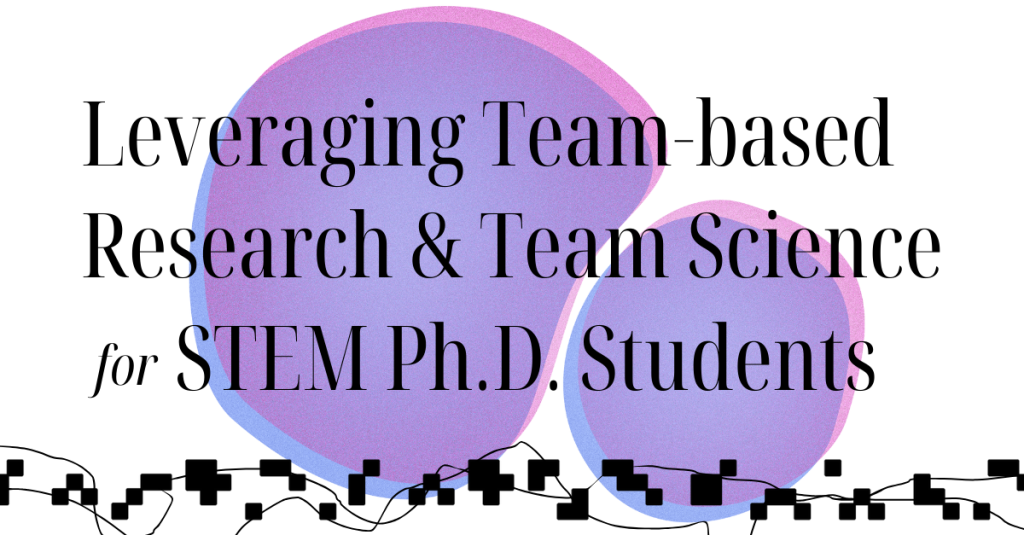
The Benefits of Team-Based Research
As a doctoral student, much of your research journey will focus on developing expertise in your specific field. However, in today’s interconnected academic landscape, the benefits of team-based research are more significant than ever. Collaborating with others allows you to tap into diverse perspectives, share expertise, and solve complex problems that might be beyond the scope of individual efforts.
If you are interested in participating in team-based research or if you find yourself working in a team-based setting and would like to know how to best leverage it, check out our latest whitepaper titled “Leveraging Team-Based Research & Team Science for STEM Ph.D. Students” It’s free to download and full of valuable tools for creating a high-functioning, collaborative research experience.

Why should I focus on team-based research?
Team-based research offers significant benefits for STEM Ph.D. students, primarily through enhanced collaboration and interdisciplinary approaches. By working within a team, students have the opportunity to collaborate with peers and experts from various disciplines, fostering an environment where diverse perspectives and methodologies converge. This interdisciplinary collaboration not only broadens the scope of their research but also enhances problem-solving and innovation, as complex scientific challenges are tackled from multiple angles. Engaging in team-based research allows Ph.D. students to learn from their peers, gain new insights, and develop innovative solutions that might not emerge in a
more isolated research setting.
Additionally, team-based research provides STEM Ph.D. students with access to diverse skill sets and expertise, increasing productivity and efficiency in their research endeavors. Team members can leverage each other’s strengths, whether in experimental techniques, data analysis, or theoretical modeling, leading to more robust and comprehensive research outcomes. This collaborative dynamic prepares students for the collaborative work environments they will encounter in academia and industry, where teamwork and interdisciplinary collaboration are increasingly the norm. By participating in team-based research, Ph.D. students develop essential skills in communication, project management, and teamwork, positioning them for success in their future careers.
